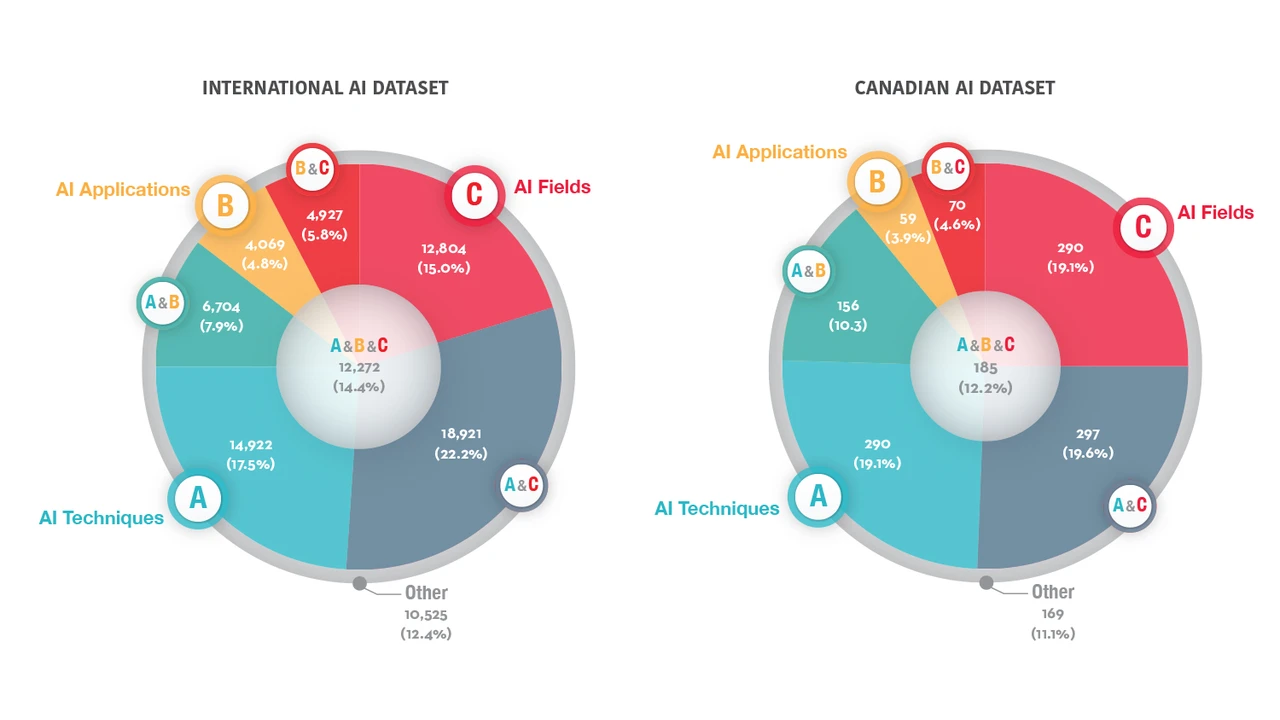AI and Privacy: Protecting Personal Data in the Age of AI
Discover how AI impacts privacy and the importance of protecting personal data. This article explores the challenges of data privacy in the age of AI. Learn about the regulations and technologies that can help safeguard privacy.

The Challenge of Data Privacy in the AI Era
Hey there! Let's talk about something super important: your data and how AI is changing the game. We’re constantly hearing about AI doing amazing things, but it's also raising some serious questions about our privacy. Think about it – AI thrives on data. The more data it has, the smarter it gets. But where does all that data come from? You guessed it: us. And how do we make sure our personal information stays safe in this AI-driven world?
The truth is, the volume and complexity of data being collected, analyzed, and used by AI systems are unprecedented. From the apps on our phones to the websites we visit, AI is quietly working in the background, gathering information about our habits, preferences, and even our emotions. This data is then used to personalize our experiences, recommend products, and even make decisions that affect our lives. But with so much data being collected, the risk of privacy breaches and misuse is higher than ever.
Why Data Privacy Matters in the Age of AI
So, why should you care? Well, data privacy isn't just about keeping secrets. It's about having control over your own information and how it's used. It's about ensuring that your personal data isn't used to discriminate against you, manipulate you, or make decisions that you don't agree with. Imagine your health data being used to deny you insurance, or your social media activity being used to deny you a job. These are the kinds of scenarios that can arise when data privacy isn't taken seriously.
Moreover, data privacy is essential for maintaining trust in AI systems. If people don't trust that their data is being handled responsibly, they're less likely to use AI-powered products and services. This can stifle innovation and prevent us from realizing the full potential of AI. That's why it's so important to have strong data privacy regulations and ethical guidelines in place.
Specific AI Products and Privacy Concerns
Let's dive into some specific examples of AI products and the privacy concerns they raise:
Smart Home Devices and Data Collection
You know those smart speakers and smart TVs that everyone seems to have? They're super convenient, but they're also constantly listening to you. They collect data on your voice commands, your viewing habits, and even your daily routines. This data can be used to personalize your experience, but it can also be shared with third parties for advertising or other purposes. For example, the Amazon Echo (starting at around $50) is a popular smart speaker, but it's also a powerful data collection device. Concerns have been raised about how Amazon stores and uses the data collected by Echo devices.
Facial Recognition Technology and Surveillance
Facial recognition technology is becoming increasingly common in public spaces, from airports to shopping malls. This technology can be used to identify individuals, track their movements, and even predict their behavior. While facial recognition can be useful for security purposes, it also raises serious concerns about surveillance and privacy. Clearview AI, for instance, has built a massive database of facial images scraped from the internet, which has been used by law enforcement agencies around the world. This has raised concerns about the potential for misuse and the lack of transparency surrounding the technology.
AI-Powered Healthcare Apps and Sensitive Data
AI is also making its way into healthcare, with apps that can track your fitness, monitor your health, and even diagnose diseases. While these apps can be incredibly helpful, they also collect sensitive data about your health and lifestyle. This data needs to be protected with the utmost care, as a breach could have serious consequences. For example, health tracking apps like Fitbit (devices range from $100-$300) collect a wealth of personal health data, including heart rate, sleep patterns, and activity levels. The privacy policies of these apps need to be carefully scrutinized to ensure that your data is protected.
Comparing AI Products and Their Privacy Features
So, how do you choose AI products that respect your privacy? Here's a quick comparison of some popular AI products and their privacy features:
- DuckDuckGo: A privacy-focused search engine that doesn't track your searches or personalize your results. (Free)
- ProtonMail: An encrypted email service that protects your emails from being read by third parties. (Free basic plan, paid plans start at around $5/month)
- Signal: An encrypted messaging app that ensures your conversations stay private. (Free)
- Brave Browser: A web browser with built-in ad and tracker blocking. (Free)
Regulations and Laws Protecting Data Privacy
Thankfully, governments around the world are starting to take data privacy more seriously. Here are some key regulations and laws that are designed to protect your data:
GDPR The Gold Standard for Data Protection
The General Data Protection Regulation (GDPR) is a European Union law that sets a high standard for data protection. It gives individuals more control over their personal data and requires companies to be transparent about how they collect, use, and share data. GDPR applies to any company that processes the data of EU citizens, regardless of where the company is located. Fines for violating GDPR can be hefty, up to 4% of annual global turnover.
CCPA Giving California Residents Control
The California Consumer Privacy Act (CCPA) is a California law that gives California residents the right to know what personal information businesses collect about them, the right to delete their personal information, and the right to opt-out of the sale of their personal information. CCPA is similar to GDPR but applies specifically to California residents.
Other Data Privacy Laws and Initiatives
Many other countries and states are also considering or implementing their own data privacy laws. These laws are designed to give individuals more control over their data and to hold companies accountable for protecting it. Stay informed about the data privacy laws in your region and exercise your rights to protect your personal data.
Tips for Protecting Your Data in the Age of AI
Okay, so what can *you* do to protect your data in this AI-driven world? Here are some practical tips:
- Read Privacy Policies: Before using any AI-powered product or service, take the time to read the privacy policy. Understand what data is being collected, how it's being used, and who it's being shared with.
- Adjust Privacy Settings: Many apps and websites allow you to adjust your privacy settings. Take advantage of these settings to limit the amount of data you share.
- Use Strong Passwords: Use strong, unique passwords for all your online accounts. Consider using a password manager to help you generate and store your passwords.
- Be Careful What You Share Online: Think before you post anything online. Once something is on the internet, it's very difficult to remove it.
- Use Privacy-Focused Tools: Consider using privacy-focused search engines, email services, and browsers.
- Regularly Review Your Data: Take the time to review your data and delete anything you don't want to be stored.
The Future of AI and Privacy
The relationship between AI and privacy is constantly evolving. As AI becomes more sophisticated, the challenges of protecting data privacy will only become more complex. However, there's also a growing awareness of the importance of data privacy, and new technologies and regulations are being developed to address these challenges.
One promising development is the rise of privacy-enhancing technologies (PETs). These technologies, such as differential privacy and homomorphic encryption, allow AI systems to process data without revealing the underlying information. PETs can help to strike a balance between innovation and privacy, allowing us to harness the power of AI while protecting our personal data.
Ultimately, the future of AI and privacy will depend on our ability to develop ethical guidelines, strong regulations, and innovative technologies that prioritize data protection. By working together, we can create an AI-driven world that respects our privacy and empowers us to control our own data.
:max_bytes(150000):strip_icc()/277019-baked-pork-chops-with-cream-of-mushroom-soup-DDMFS-beauty-4x3-BG-7505-5762b731cf30447d9cbbbbbf387beafa.jpg)






